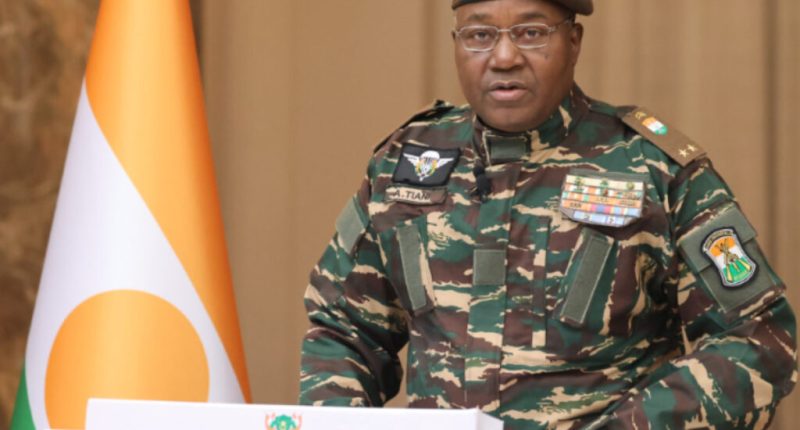Niger has officially entered a new phase of governance with Abdourahamane Tchiani, the leader of the military junta, sworn in as the country’s president for a five-year transitional period. This swearing-in, which took place on Wednesday, marks a pivotal moment in the nation’s political trajectory, signaling that the military regime is consolidating its power and that the existing constitution has been replaced by a new charter.
The five-year transition period was set into motion on the same day, and according to the government’s secretary-general, Mahamane Roufai, this duration is subject to change depending on Niger’s security landscape, the scale of needed reforms, and the goals of the Confederation of Sahel States. The potential flexibility of this timeline reflects the complex and unstable environment in which the junta is operating, where challenges like security threats and internal reform efforts may stretch or shorten the transition period.
Tchiani, a seasoned army officer, was promoted to army general following the coup that ousted the elected government in June 2023. His ascension to president solidifies his control over the country, following a trend of military leaders extending their rule in countries like Mali, Guinea, and Burkina Faso. By the time the transition period ends in 2030, Tchiani will have been in power for nearly seven years—showing similarities to the long tenures seen in other junta-led African nations.
Initially, the junta proposed a three-year transition, but this was rejected by the Economic Community of West African States (ECOWAS), which viewed it as too provocative and threatened military intervention to reinstate democratic rule. In response to the ECOWAS stance, Niger, along with Mali and Burkina Faso, withdrew from the regional bloc, protesting the harsh sanctions imposed by ECOWAS to pressure the military regime into returning to democratic governance.
Critics of the junta argue that, despite its justification for the coup as a response to growing jihadi violence, the military government has struggled to effectively address the security situation. Furthermore, they point to the growing restrictions on civil liberties under the junta, which has raised concerns about the country’s future and its ability to navigate the challenges of both governance and security. The international community, including human rights organizations and neighboring states, will likely keep a close watch on the developments in Niger during this transitional period, particularly regarding how the junta balances security, reforms, and the restoration of civilian rights.





